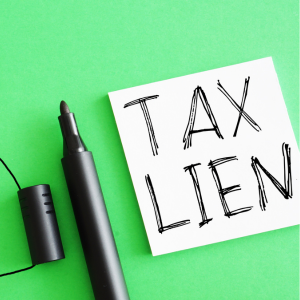
Discovering if There’s a Lien on Your Property in Los Angeles, CA
Figuring out whether there is a lien on your property in Los Angeles, CA, is crucial for preventing future legal hassles. A lien can affect your ability to sell or refinance, making it important to identify and resolve any claims promptly. Whether you’re worried about tax liens, judgment liens, or mechanics liens, this guide will walk you through the steps to verify any liens on your property. Learn how to access the necessary records, understand the implications of a lien, and take the right actions to safeguard your property investment in Los Angeles.
Key Highlights
- Liens are legal claims on property, affecting sale and refinancing abilities if unresolved.
- Property lien types include tax, judgment, mechanic’s, and voluntary liens, each with unique implications.
- Check liens via Los Angeles County records or credit reports for comprehensive insights.
- Remove liens by settling debts, obtaining release documents, and updating public records promptly.
- Prevent future liens by managing financial obligations, monitoring public records, and maintaining contractor agreements.
Understanding Property Liens

Property liens are a significant concern for homeowners, especially if you’re in Los Angeles, CA. They can impact your real estate’s marketability and complicate the sale. By grasping the fundamentals, you can effectively manage and prevent liens.
This part goes into detail about what a lien is and the different kinds. It gives you important information that you need to protect your real estate. Knowing the state of your lien can keep your property free of any liens and ready for any transaction. It can also keep you out of trouble with the law and avoid expensive disputes.
What is a Lien?
A lien is a legal claim against property that gives a creditor a way to be sure that the property owner will pay back a loan. If the debt isn’t paid, this restriction gives the lienholder the right to demand that the property be sold.
Liens can be voluntary, like mortgages, or involuntary, like tax liens, and are typically recorded in county records. They signal financial responsibility on the owner’s part and must be settled to release the lien and clear the property’s title.
If you want to sell your house fast in Los Angeles, one of the first things to do is check for property liens. The county assessor and registrar-recorder’s websites provide detailed records showing whether your property is tied to any debts. Reviewing these records regularly helps you avoid unexpected setbacks and gives you the chance to resolve issues early, making the selling process much smoother and faster.
Common Types of Liens on Properties
Real land can have many types of liens, and each one has its own effects. Tax liens are one of the most common types. They happen when property or income taxes are not paid. If you don’t pay your taxes in Los Angeles, California, the county can put a tax lien on your property and demand that you pay before any real estate deal can go through.
Judgment liens are another prevalent type. They result from court decisions against a property owner who owes money to a creditor. Mechanic’s liens, meanwhile, occur when contractors or suppliers remain unpaid for their services or materials.
Lastly, voluntary liens are common, like mortgages. However, they still need to be carefully watched to make sure they don’t turn into bigger problems. Actively learning about and keeping an eye on the different liens that can affect your property is important for keeping its legal status and value.
How to Check for a Lien in Los Angeles, CA
Understanding how to check for a lien on your property in Los Angeles, CA is essential for maintaining clear ownership rights. A lien recording can seriously impact your ability to sell, refinance, or manage property transactions.
This guide talks about two main ways to do it: using your credit report and looking through county public records. By doing these things, homes can quickly find out about any liens, which can save them time and money problems.
Researching through County Records

To start your search, the Los Angeles County Recorder’s Office is a prime resource for accessing real estate records. These records are meticulously maintained and reflect the most recent data available.
Another useful point of access is through the county assessor’s office, which provides tax-related lien information. Making regular checks on these repositories safeguards you from unforeseen legal or financial implications. Judgment liens, for instance, can be discovered here, ensuring that you’re not blindsided when trying to refinance or sell.
Utilizing Your Credit Report for Lien Information
Another important tool for finding liens is your credit report. A lot of the time, these records show financial judgments that may have been recorded as liens, but not all liens will be shown.
Equifax, TransUnion, and Experian are the three main credit bureaus. It’s best to look at reports from all three to compare information. Any strange things should make you look into it more, and if you need to, you can talk to pros like lawyers or financial advisors. This proactive habit will keep you up to date on your finances and any claims made against your property.
Steps to Remove a Lien
Encountering a lien on your property in Los Angeles, CA can be daunting, but understanding the removal process can ease the burden.
The first step is to get a lien release, which can be done by paying off bills or working out terms with creditors. Every step is important for protecting your property rights, from talking to county officials to making sure that public records are kept up to date.
Understanding the Lien Release Process
Successfully removing a lien involves resolving the debt or obligation that caused it. Once settled, the creditor issues a lien release document. This must then be filed with the Los Angeles County Recorder’s Office so the release appears in public records.
If you don’t record the release correctly, your title could be harmed even after the bill is paid. To keep your property’s clean status, you need to negotiate a deal, make sure you know the filing requirements for your state, and double-check that all liens have been removed from the records.
Handling Liens at the State Level
In California, specific state laws regulate lien filing, enforcement, and removal. For example, property tax liens often take precedence and must be cleared before other debts.
Dealing with liens may require interaction with the county assessor, state tax agencies, or court systems for judgments. Because state-level procedures can be complex, consulting an attorney experienced in California real estate law often proves invaluable in ensuring liens are removed properly.
Preventing Future Liens
To keep liens from appearing on your Los Angeles home in the future, you need to be proactive. Homeowners should know how liens form, keep an eye on public records, and carefully handle their money responsibilities.
If you stay on top of problems, you can keep your title available and avoid problems with future sales or refinancing.
Tips for Maintaining a Lien-Free Property
To keep your property lien-free, pay property taxes promptly and maintain good communication with the county assessor’s office to avoid errors.
Investor home buyers in California, as well as traditional homeowners, should regularly use their county’s records site to monitor their property’s lien status and review credit reports for any early signs of judgment-related liens. To avoid mechanic’s liens, it’s essential to establish clear contracts with contractors and ensure payments are made on time.
If you’re uncertain about the next steps, it’s wise to consult a professional familiar with Los Angeles real estate laws. Their guidance can help you protect your investment, prevent unexpected issues, and make the process of owning property as smooth as possible.
Working with Title Companies
Engaging a title company is often one of the most efficient ways to uncover existing liens on your property. Title companies conduct comprehensive searches of public records to verify ownership and identify any encumbrances tied to your property.
Because the market is so big and varied in Los Angeles, title companies there are very good at handling complicated deals. They also sell title insurance, which saves buyers and lenders from losing money if a lien is found after the sale that wasn’t known about before. Using their services can give you peace of mind by making sure that no claims go ignored and put off your future property deals.
Consulting Real Estate Attorneys

A qualified real estate attorney can be invaluable when dealing with liens in Los Angeles. Unlike title companies, attorneys can provide legal advice, represent you in negotiations, and handle disputes with lienholders directly.
Lawyers know a lot about California property law, so they can help you make agreements that reduce risk and plan for possible problems. If there is a court judgment or a disputed mechanic’s claim related to a lien, having a lawyer can mean the difference between long disputes and quick settlement. When homeowners want to protect their property, it’s often worth the money to talk to an attorney.
Financial Planning to Avoid Liens
Many liens arise from financial mismanagement, whether through unpaid taxes, contractor bills, or debt judgments. By establishing a strong financial plan, homeowners can significantly reduce the chances of future liens.
This includes setting aside reserves for property taxes, monitoring household budgets to cover unexpected expenses, and reviewing loan obligations regularly. Financial advisors can also help create repayment strategies if debts become overwhelming, ensuring obligations are met before they evolve into liens. In Los Angeles’s competitive real estate market, such planning not only prevents liens but also boosts long-term property stability.
Finding out whether there’s a lien on your Los Angeles property involves careful research of official public records and, when needed, guidance from professionals.
By being proactive and working with a title company or real estate attorney, you can identify liens early, address them properly, and safeguard your property’s value. And if you’re looking for a faster solution, Eazy House Sale buys houses for cash in any situation and condition, giving you a stress-free way to move forward. Reach us today to know more.
FAQs
What types of liens can affect property in Los Angeles, CA?
Property owners may encounter tax liens, judgment liens, mechanic’s liens, and voluntary liens like mortgages.
How can I find out if there is a lien on my property in Los Angeles?
Check county public records or review your credit report. The Los Angeles County Recorder’s Office and assessor’s website provide detailed information.
How do I remove a lien from my property?
Settle the debt, obtain a lien release, and file it with the Los Angeles County Recorder’s Office.
What can I do to prevent future liens on my property?
Pay taxes on time, monitor county records, and maintain clear contractor agreements.
How do liens affect my ability to sell or refinance my property?
Liens cloud the title and must be resolved before any sale or refinancing can proceed.
Helpful Los Angeles Blogs Articles
- How Do I Know If There Is A Lien On My Property in Los Angeles, CA
- How Much is Home Staging Cost in Los Angeles, CA
- Switching Real Estate Agents In Los Angeles, CA
- Selling a Flood-Damaged Home in Los Angeles, CA
- How Long Can You Go Without Paying Your Property Taxes in Los Angeles, CA
- Is Los Angeles, CA, safe?
- Sell Your House Directly To The Bank In Los Angeles, CA
- Best and Worst Neighborhoods in Los Angeles, CA
- Can I Rent Out My House During Divorce in Los Angeles, CA
- Should You Replace Carpet Before Selling a House in Los Angeles, CA
- Do You Need a Deed to Sell a House in Los Angeles, CA?
- Do Open Houses Still Work When Selling a Home in Los Angeles, CA?
- Selling a House with Termite Damage in Los Angeles, CA

